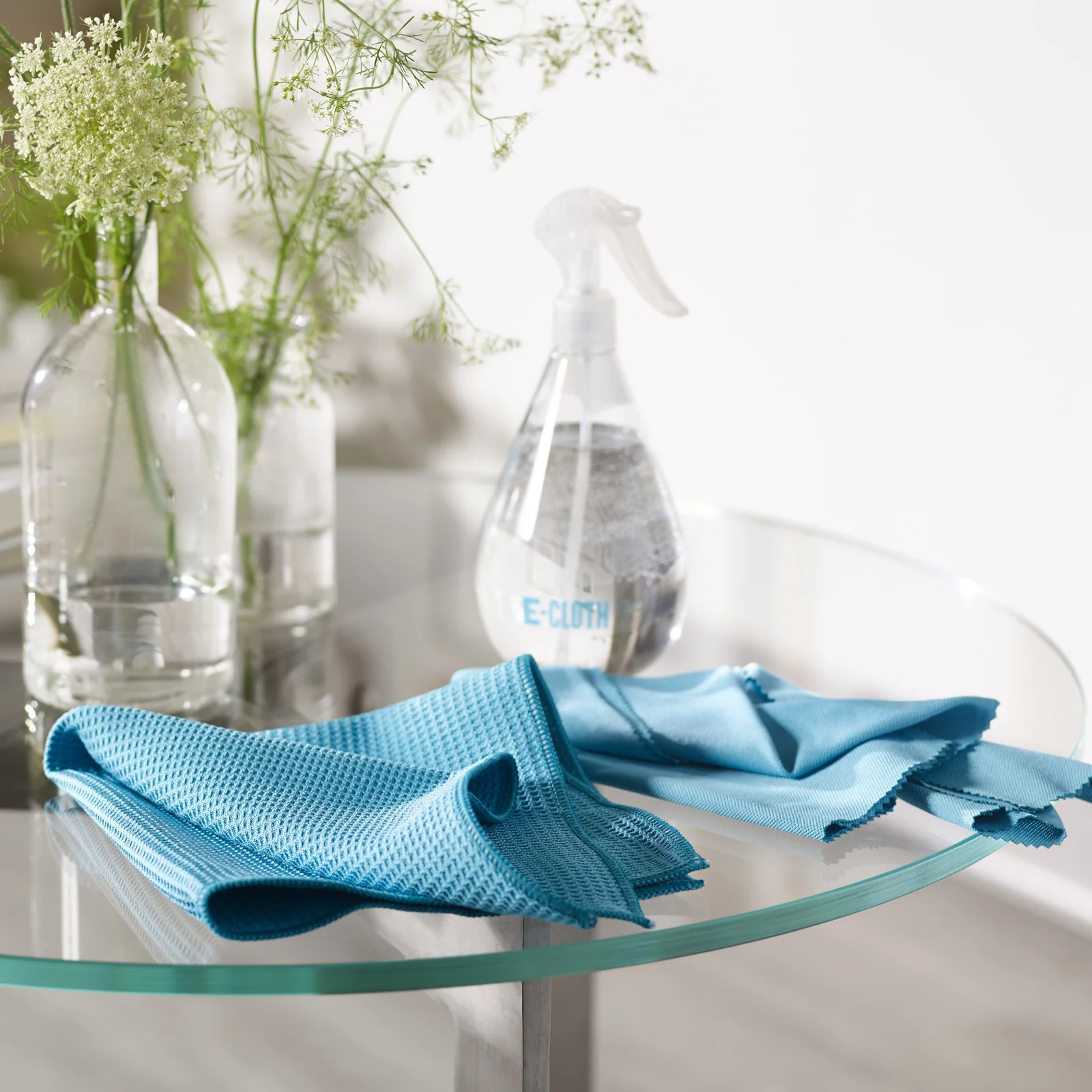Table of content:
How Often You Should Clean Your Computer mouse
Consequences of Skipping Computer mouse Cleaning
DIY Methods to Clean Your Computer mouse
Keeping your computer mouse clean is essential for both hygiene and performance, but how often you should clean it depends on your usage and environment. Whether you use your mouse daily, share it in a busy workspace, or only occasionally, establishing a regular cleaning routine helps prevent grime, germs, and technical issues from building up. By understanding the right cleaning frequency for your situation, you can maintain a smooth, responsive device and a more professional, comfortable workspace.

A Clean You Can See
Our high-performance microfiber products simplify cleaning, making it quick, easy, and effective, so you can enjoy visible results without the fuss. No streaks, just results.
How Often You Should Clean Your Computer mouse
Frequency Recommendations for a Clean Mouse
- Regular use: For most people who use their mouse every day, cleaning it once a week is a solid routine. Regular cleaning helps manage the build‐up of skin oils, dust, and everyday debris that accumulate with constant use.
- High-traffic or shared workspaces: If you’re lending your mouse to coworkers or often switching between devices, consider a quick clean every 2-3 days. This helps prevent noticeable film build-up and keeps the device functioning smoothly.
- Low-use or controlled environments: In clean, low-dust areas or if you use your mouse less frequently, you might opt for a more relaxed monthly cleaning schedule. However, even in these cases, giving it a look-over once a week for any grime is a good habit.
Why This Frequency?
- Prevents Accumulation: Daily contact transfers natural oils and fine particles. Regular cleaning prevents build-up that could make the surface feel sticky or less responsive.
- Maintains Performance: A clean mouse not only looks better but can help maintain smooth tracking and efficient performance over time.
- Easy Maintenance: A quick weekly wipe is a low-effort investment that keeps your workspace in check without turning cleaning into a major chore.
Streak-Free Wherever You Need It
E-Cloth is committed to delivering a clean you can see—effortlessly erasing messes with just water for a spotless shine, free of streaks and added chemicals.

Consequences of Skipping Computer mouse Cleaning
Consequences of Skipping Computer Mouse Cleaning
- Germ Buildup: Your mouse is a magnet for everything your hands touch—crumbs, oils, and, yes, germs. Over time, these can accumulate on the surface and in crevices. While regular cleaning can help wipe away much of this buildup, skipping it means you’re basically giving bacteria a free ride every time you click.
- Sticky, Unresponsive Buttons: Ever notice your mouse buttons feeling a little sluggish or sticky? That’s often due to grime and debris working their way into the tiny spaces around the buttons. This can make your mouse less responsive, which is especially annoying if you’re working or gaming.
- Erratic Cursor Movement: Dirt and dust can collect on the underside of your mouse, especially around the sensor or trackball. This can cause your cursor to jump, lag, or move unpredictably—turning a simple task into a test of patience.
- Unpleasant Odors: Let’s be real—hands aren’t always clean, and over time, the oils and sweat transferred to your mouse can start to smell. If you’ve ever caught a whiff of something funky at your desk, your mouse could be the culprit.
- Shortened Lifespan: All that gunk doesn’t just sit on the surface. It can work its way inside, affecting the internal components and potentially leading to malfunctions. Regular cleaning helps keep your mouse working smoothly for longer.
- Allergy Triggers: Dust, pet hair, and other allergens can collect on your mouse. If you’re sensitive, this can mean more sneezing and itchy eyes—definitely not what you want during a work session.
- Unprofessional Appearance: If you’re sharing a workspace or have visitors, a grimy mouse can make a bad impression. A clean mouse signals that you care about your environment and pay attention to details.
DIY Methods to Clean Your Computer mouse
.svg)
Isopropyl Alcohol and Cotton Swabs
Dampen a cotton swab with isopropyl alcohol and gently clean around the buttons, scroll wheel, and seams of your computer mouse. The alcohol disinfects and removes grime, leaving your mouse clean and residue-free.
.svg)
Toothpick and Microfiber Cloth
Use a toothpick to gently remove dirt and debris from the crevices and around the buttons of your computer mouse. Then, wipe the entire surface with a microfiber cloth to pick up dust and leave the mouse clean and smudge-free. This method is safe for electronics and helps maintain smooth mouse performance.
.svg)
Compressed Air and Soft Brush
Hold the mouse upside down and use short bursts of compressed air to remove dust and debris from crevices. Gently brush around the buttons and sensor with a soft brush to dislodge any remaining particles. This method keeps your mouse clean without causing damage.
.svg)
Vinegar and Soft Cloth
Dampen a soft cloth with equal parts white vinegar and water. Gently wipe the surface and underside of the computer mouse, avoiding any openings. This natural solution removes dirt and grime without damaging electronics.
.svg)
Hidden Internal Damage
Using isopropyl alcohol and cotton swabs can cause hidden internal damage to a computer mouse by allowing liquid to seep inside, potentially harming sensitive electronic components and leading to malfunction or reduced lifespan.
.svg)
Limited Surface Reach
This method may not effectively clean all areas, as toothpicks and microfiber cloths can miss dirt or debris lodged in tight crevices or under buttons, leaving some parts of the mouse uncleaned.
.svg)
Residual Grime Buildup
Compressed air and a soft brush may not fully remove stubborn grime stuck in crevices or under buttons, leading to residual buildup that affects mouse performance and hygiene.
.svg)
Electronic Component Risk
Using vinegar on electronic components can cause corrosion or residue buildup, potentially damaging the mouse’s internal circuits. Moisture from the cloth may also seep inside, increasing the risk of short circuits or malfunction.
Ready for an Easier Way to Clean?
Skip the mixing, spraying, and scrubbing. With E-Cloth, you get a streak-free shine using just water—no added chemicals, no hassle. Make every window sparkle the simple way.
Explore other Articles
Headphones
Learn how often to clean your headphones for optimal sound and hygiene. Simple tips to keep them fresh and lasting longer.
Bookshelves
Discover the ideal frequency to clean your bookshelves for a dust-free, organized, and fresh home library.
Jeans
Discover the ideal frequency to clean your jeans for lasting style, comfort, and fabric care. Keep them fresh and durable!
Range hood filter
Learn how often to clean your range hood filter for optimal kitchen air quality and appliance efficiency. Keep it fresh and safe!
Washing machine
Learn how often to clean your washing machine for optimal performance and freshness. Keep your laundry fresh and your machine efficient!
Garage floors
Discover the ideal frequency for cleaning your garage floors to keep them spotless and well-maintained year-round.
Experience Real Cleaning
A Clean You Can See
Experience Real Cleaning


